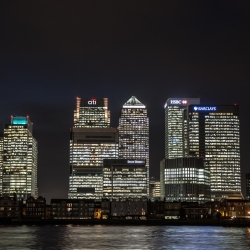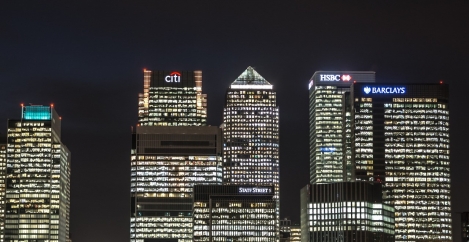November 26, 2021
What big city exodus? Minority of Londoners are working from home full time
 Research carried out by Momentive (formerly SurveyMonkey), exploring Londoners’ changing experience and expectations of work claims that despite common beliefs, COVID-19 has not caused the end of ‘city life’ with just 14 percent working remotely full time.
Research carried out by Momentive (formerly SurveyMonkey), exploring Londoners’ changing experience and expectations of work claims that despite common beliefs, COVID-19 has not caused the end of ‘city life’ with just 14 percent working remotely full time.
The report claims that a third (36 percent) of Londoners are currently working on a hybrid basis. Whilst 37 percent say they would be keen to have a booster vaccination to avoid further lockdowns, it seems that vaccination hesitancy is higher in the capital than the rest of the UK where Londoners are 50 percent more likely to not have had a single vaccination dose than the average UK worker.
COVID-19 drastically changed the city working landscape with flexible and hybrid work becoming core benefits adopted by London offices, with 59 percent now offering hybrid working structures. Momentive research suggests that London employees are also demanding more from their employers, with unlimited holiday (47 percent) and a four-day work week (43 percent) chosen as the top two benefits employed Londoners want that they don’t already have.
Return to hybrid working and proximity bias concerns
Whilst 50 percent of Londoners would go back to the office if asked to, employers should bear in mind that 46 percent would rather quit than go back into the office full time. A further 30 percent believe that working patterns have shifted permanently and hybrid will remain a mainstay of office culture in 2022.
[perfectpullquote align=”right” bordertop=”false” cite=”” link=”” color=”” class=”” size=””]”While the pandemic initially gave rise to an exodus of city workers, the research shows that it didn’t last long”[/perfectpullquote]
Alongside new work environments, proximity bias is another consideration for companies mapping their future approach. This is the concept where employees with close physical proximity to their team and company leaders will be perceived as better workers, be sought out for their opinions more regularly, and ultimately find more success in the workplace than their remote counterparts.
When asked about proximity bias, 26 percent of Londoners have worries about missing out on opportunities if they are working remotely. A further 22 percent expressed concern that their employers will not take their opinions and feedback into consideration when deciding on work policies in 2022.
The findings demonstrate that although the return to the office is in motion, employers should still be careful about returning to ‘old’ ways of working if they want to retain staff during what is now being dubbed ‘The Great Resignation.’ For instance, a larger portion of employers are taking employee feedback into account. Fully 60 percent of Londoners said that they were asked for feedback by their employer during the pandemic, whilst 40 percent believe that the changing work environment brought about by the pandemic has meant that employers listen to their opinions regarding business policies.
Vaccination hesitancy and booster vaccinations
The research also highlights Londoners’ attitudes to vaccinations and booster jabs with 17 percent saying that returning to an office environment would encourage them to get a booster vaccination. Whilst three-quarters (77 percent) of Londoners have received at least one COVID-19 vaccination, 23 percent admit to not having had a single dose, over 50 percent higher than the UK average, suggesting that mandating vaccinations for all employees could be a contentious subject in the capital.
With the government pushing for the public to book and receive their booster vaccinations ahead of winter, Londoners said the top four reasons that would encourage them to get a booster vaccination if offered are:
• Avoiding further lockdowns (37 percent)
• Personal health anxiety (39 percent)
• Travel during the holidays (35 percent)
• Wanting to help the NHS (33 percent)
“While the pandemic initially gave rise to an exodus of city workers, the research shows that it didn’t last long,” says Graham Douglas, Managing Director of EMEA at Momentive. “In the UK, many businesses have called employees back to the office—with just 14 percent of Londoners working from home full time. As companies determine working policies in 2022 and beyond, they must be aware of employee sentiment around how and where they work best or risk losing key talent.”














